– Luke Zahm: This week on Wisconsin Foodie: I’m at the Milwaukee Athletic Club, where I’ve been invited to cook with Chef Adam Pawlak and nine other restaurants in the area.
I’m putting together a few delicious bites that highlight the love and care and craft that Wisconsin puts into her potato industry.
I would like to take you on a little journey tonight.
We had the opportunity to spend some time at Sterling Farm and meet Joe and his family.
These Healthy Grown potatoes are definitely a staple of Wisconsin.
I really hope that some of this work and your hard work catches people right where they buy from, right from their heart.
And once these get loaded into the semi, I’d have to imagine there’s a couple extra steps between here and the grocery store or the restaurant, right?
– Joe Seis: Oh, yes.
The semi will go down to Alsum’s, and they’ll wash ’em and they’ll grade ’em again, any defective potatoes.
– It looks like a whole hopper of happy potatoes.
– And we’re moving 1,000 pounds a minute like that.
Yeah, 1,000 pounds a minute roughly.
– Luke: I’m assuming this isn’t a dance party going on underneath here.
– Larry: It’s not.
– Luke: Oh, okay.
So this is a, this is a love letter to the potato.
These bites are the bites that make Wisconsin shine.
Yum.
Wisconsin Foodie would like to thank the following underwriters.
[gentle music] – Did you know Organic Valley protects over 400,000 acres of organic farmland?
So are we an organic food cooperative that protects land, or land conservationists who make delicious food?
Yes; yes, we are.
Organic Valley.
– Twenty-minute commutes.
Weekends on the lake.
Warm welcomes and exciting career opportunities.
Not to mention all the great food!
There’s a lot to look forward to in Wisconsin.
Learn more at InWisconsin.com.
– Employee-owned New Glarus Brewing Company has been brewing and bottling beer for their friends, only in Wisconsin, since 1993.
Just a short drive from Madison, come visit Swissconsin and see where your beer’s made.
– We have one chance to do it right and not compromise the integrity of the products or the company because it’s easier or cheaper or faster.
– With additional support coming from the Conscious Carnivore.
From local animal sourcing to on-site, high-quality butchering and packaging, the Conscious Carnivore can ensure organically raised, grass-fed, and healthy meats through its small group of local farmers.
The Conscious Carnivore: Know your farmer, love your butcher.
– Also with the support of the Friends of PBS Wisconsin.
[bright, driven folk pop music] – Luke: We are a collection of the finest farmers, food producers, and chefs on the planet.
We are a merging of cultures and ideas, shaped by this land.
[sizzling] We are a gathering of the waters, and together, we shape a new identity to carry us into the future.
[glasses clinking] We are storytellers.
We are Wisconsin Foodie.
[mellow music] Hmm.
I’m at the Milwaukee Athletic Club, where I’ve been invited to cook with Chef Adam Pawlak and nine other restaurants in the area, and I was given a course that had the guideline of using vegetables.
So after everything I’ve learned this summer about Wisconsin-grown potatoes, I thought, why not showcase the versatility and the flavor profiles of our Wisconsin potatoes?
So today, I’m putting together a few delicious bites that highlight the love and care and craft that Wisconsin puts into her potato industry.
And I am excited.
[bright acoustic guitar music] – We’re at the Milwaukee Athletic Club for the sixth annual MKE Chef Collaboration dinner.
Fourteen chefs and eleven charities.
This is the sixth year.
We obviously have some of Milwaukee’s best chefs coming together to do a meal for 150 guests, 12 VIPs.
We have music, we have food, drinks.
You can’t go wrong.
Once a year, you gotta be here.
If you’re not here, you’re missing out.
– Yeah, it’s a nice event.
There’s a crazy amount of talent here.
For so many years, I heard that Wisconsin is culinary flyover country.
And to be in this room tonight is no joke.
There are some heavy, heavy hitters, and I’m just really excited to be here and put out some food that hopefully makes Wisconsin proud.
You know, the majority of my dish today is very, very simple– potato, cream, butter.
But, you know, in Wisconsin, that’s like, speaking a holy language.
You know, we take our potatoes, we take our cream and butter very, very seriously.
So I feel like I’m doing the good work tonight by showcasing something that kind of stretches me as a chef, because, quite frankly, it’s technical, it’s difficult.
And also highlighting the hard work of the farmers and the farming community here in the state.
There’s a lot of different ways to approach any of the ingredients that we see around us.
And I feel like I’m doing maybe Wisconsin just a little bit proud, looking at it from a different perspective.
[upbeat music] Good evening.
I grew up in the Midwest and started cooking when people said that the Midwest was culinary flyover country.
That’s been a mantra that’s stuck in my heart my entire life, and it’s so lovely to see us transcending that idea together.
This is truly wonderful.
I would like to take you on a little journey tonight.
In this course is so much love and dedication.
Spending some time in Grand Marsh, Wisconsin, the Central Sands part of Wisconsin, I had the opportunity to explore an ingredient that for 24 years in the professional cooking industry, I’d never really given much thought to: potatoes.
We had the opportunity to spend some time at Sterling Farm and meet Joe and his family.
– Joe: Hi, I’m Joe Seis with Sterling Farms.
We’re here near Grand Marsh, Wisconsin.
It’s just been part of my culture growing up.
And in 2008, I just started my own farm from scratch.
I grew up reading The Common’Tater, which was Wisconsin’s potato magazine.
You know, there’s a lot of the old timers I’ve, you know, admired.
You know, they were pioneers of this industry.
It’s kind of neat to follow in their footsteps.
Long story short, when I was about 13 years old, I wanted to buy a snowmobile.
So, some of my friends were getting a job at a local potato farm, and I wanted to ride snowmobile with them.
So I went and got a job there and kind of got addicted to it, and been here ever since.
We started from scratch, we didn’t have much.
You know, we started with a run hole– one-row planter and a little harvester.
It was the basics.
We farm about 1,000 acres or more.
About 330 is potatoes, and we primarily grow yellow potatoes for the fresh market.
The consumers are desiring the farmers to be sustainable.
They want us to be stewards of the land, taking care of the land, being able to pass it to the next generation, and Healthy Grown is a path for us to accomplish that with whatever the minimal impact we can to defend and protect this crop from diseases and pests.
– Arthur: Did you ever get your snowmobile?
– Oh, yeah, yep, yep.
[upbeat music] – Joe.
– Good morning.
– How are we doing, bud?
– Real good.
– Luke: What are we looking at here?
I see potatoes as far as the eye can see.
Tell me a little bit about what we’ve got going on here.
– Well, we just harvested some potatoes and put ’em on this truck, and now we’re running ’em over this conveyor and putting ’em on the semi.
In the meantime, the guys are picking out any rocks or vines or anything that’s not a potato, basically.
– Luke: Sure.
How many trucks does it take to fill up one of those semis?
– Joe: Almost two trucks.
We’ll do about five to ten semis a day.
– Luke: And once these get loaded into the semi, I’d have to imagine there’s a couple extra steps between here and the grocery store or the restaurant, right?
– Joe: Oh, yes.
The semi will go down to Alsum’s, and they’ll wash ’em and they’ll grade ’em again, any defective potatoes, and then they’ll size ’em, and then they’ll put ’em in the bags.
They’ll cool ’em down, and then they’ll be sent out to grocery stores.
– This is mesmerizing, I mean, you can– If you stare too long at any one spot– – Worker: Yeah, you’d get drunk.
– You get drunk.
[laughs] Well, now I now have an excuse the rest of the day, huh?
I’m still drunk from the sorting line.
Joe, tell me a little bit about this beautiful green field.
What are we looking at here?
– Joe: We’re looking at a field that’s in the bulking stages where the tubers are getting larger.
They’re getting ready to be desiccated so that we can start the harvest process.
– Luke: How long have you been working potatoes?
– Joe: Oh, I’ve been in it most of my life.
I actively started my own farm in 2008, and we’ve grown it from there.
– Why potatoes?
– I don’t know, just born that way.
– If I was a potato farmer, I think I would be constantly singing or playing “I always feel like there’s somebody watching me,” because there’s got to be a billion eyes out here, right?
– Yeah.
[laughs] – You know?
– Yeah.
– You know?
[both laugh] So while these aren’t, like, USDA organic, this Healthy Grown standard, you know, really is almost like a pledge on your behalf to grow these the most sustainable way you can with efficiency that gets them affordably to the plates of the consumers all over the United States.
Correct?
– Joe: Correct.
– Luke: Why is that important to you as a farmer and a husband and a father?
– Joe: I can see the sustainability of it.
The soil is healthier, the crop is healthier.
It’s just a more natural crop.
Healthy Grown was initiated nearly 20 years ago by a group of growers.
They got it established, they’ve been working it, and it’s really starting to take off.
And grocery stores are adopting it.
More growers are adopting it.
And it’s being more consumer friendly.
And I believe consumers are recognizing it.
– You know, if you could pass on obviously that, this craft to your children, what is it that you would hope you’d see in your kids taking over Sterling Farm and raising potatoes?
– Joe: I hope they will learn to work with the land.
Being able to talk to the land and communicate with it so that you know when the soil needs water or fertilizer, you know when the plants need something.
They always say the best fertilizer in the field is a man’s footsteps, so I live by it.
I’m out in my fields nearly daily knowing what’s going on in the fields.
– Yeah, I can say as a chef, you know, potatoes are one of those ingredients that, like, every single restaurant just about you go into has potato on the menu in some form or other, if it’s fries or hash browns or mashed or baked or whatever.
But understanding how these are grown and harvested and then processed and sorted, this is very eye-opening for me.
You know, I have no idea how many thousands of pounds of potatoes I’ve worked with in my life, but I really hope that some of this work and your hard work, catches people right where, where they buy from, right from their heart.
You know, these Healthy Grown potatoes are definitely, definitely a staple of Wisconsin.
And I didn’t know that we were the third-largest potato producer in the United States.
– Joe: Correct.
– Luke: Yeah.
Largest east of the Mississippi, I’m told.
– Joe: Yeah, yeah.
– Luke: So, Joe, I just wanna thank you so much for your time today, taking me out in the fields and harvesting and letting us be a part of this.
I think from here, we’re gonna part ways and we’re gonna follow these potatoes to Alsum to see what happens next in the life cycle of these gorgeous little papas.
– Larry Alsum of Alsum Farms and Produce.
I’m the president and CEO of the Alsum companies.
Well, the Alsum family of companies is a family-owned business.
Well, the business was actually started by my cousin Glenn Alsum in 1973.
So we’re 51 years old.
I’m so proud of our family business.
We have a great legacy here in the Friesland community.
I’m very thankful for my daughters being in business with me, but really, it’s 250 other employees that work for us as well.
And so the potato has allowed us to grow the business that way.
And so we’re just so thankful for the network of people that we have working for us.
You know, it’s, I’ve been blessed and so thankful for it.
Our business is primarily focused on the fresh part of the industry, growing fresh market potatoes that you would see in a retail grocery store or consumed fresh at a restaurant.
So what happens when a load of potato arrives is every day, we load up 15 to 25 loads of potatoes that are gonna be on our semi-trailers for the next day’s production run.
Those potatoes come in in the morning.
We wash them through our flume system.
They get sized, graded, and then eventually packed into the different packages that our customers want.
– So, Larry, I was really curious.
I mean, I guess I had never really considered how a potato truck gets unloaded.
You know, most people don’t, but this is pretty ingenious.
– Larry: Just using water, we float ’em outta the truck, and so we get– once the water starts running, it picks them up and it floats them right out.
It’s kind of neat.
They got just the right density that they float.
If you have just a little bit of volume of water, they’ll float right outta there.
It takes about 45 minutes.
About 1,000 pounds a minute.
We just lift them up and throw them off the truck into our flume system.
And that’s the starting of our wash process to get the potatoes cleaned up and ready to grade and size and pack.
– So there’s a flume system going underneath to the washing facility where all these potatoes go.
– We have a tank over there that has our water in there.
We recycle that water over and over again many, many times.
And we use that water to float the potatoes off the truck into our wash system, basically.
Plus, it’s a very gentle way to handle them and so forth.
They’re literally floating in the water like that.
– You ever consider just like, you know, instead of going to the Dells for a family holiday, letting the grandkids…?
– No, not here.
– Luke: No, you’re right, fair enough.
– Larry: So the potatoes are pumped up with our pump system.
They’re in this wet hopper just to soak for a minute or two.
And there’s a belt on the bottom that brings them up into our grading line.
At this point, the conveyance changes from water to using belts and conveyors to move ’em into a barrel washer.
Yeah, these are nice-looking russet potatoes here.
A nice size profile, some smaller ones, but also some of the bigger ones.
Kind of makes for a perfect pack out.
They’re going into our barrel washer right here.
They kind of tumble in there and most of the dirt comes off, but you’ll notice a difference if you look at ’em there to down there, that final rinse, they look a lot cleaner, don’t they?
– Now personally, when you cook a russet potato, do you always peel it?
– No, I usually don’t.
Especially if I’m gonna bake it for a baked potato, I never peel it.
I eat the skins, I eat everything.
– Yeah, and even on mashed potatoes, I like the skins on mashed potatoes myself.
And I like roasted potatoes skins on.
– There’s no reason to take it off.
It’s good, it’s texture difference.
It’s healthy, right?
Lots of nutrients.
Eat them potato skins!
This is like one of those carnival rides you get into, and you know you’re gonna puke, but you kind of want to do it anyway.
Just tossing around in the barrel washer.
– Larry: Once they’re through the barrel washer, we go through this final rinse.
This is a fresh water.
And then usually, I’ll tell ’em, you know, that’s our drying step, too.
So we have sponge rollers, and those sponge rollers, you can see they’re wet there.
And by the time they get to the end of the conveyor, they’re drier than what they were.
They’re not all the way dry, but that’s our drying step as well.
– I mean, it looks like a whole hopper of happy potatoes.
– Larry: Again, we’re moving 1,000 pounds a minute like that.
Yeah, 1,000 pounds a minute, roughly.
– Luke: So this is pretty impressive.
Feel like the king of the world up there.
Getting your Titanic moment in?
[upbeat music] What am I looking at?
– Larry: We bring ’em up on to our second level here, where we’d go through a sizing and then a sizing grading process.
And everything you can see in the holding tank is basically sized and graded by our camera system once.
And so every tank has its own size profile in it.
– Luke: I’m assuming this isn’t a dance party going on underneath here.
– Larry: It’s not.
– Luke: No, okay.
– Well, this is where the final steps happen for us.
That final step is still done by manual with graders here.
We do have a couple of automated systems that we’re testing out right now.
This is our newest robotic grader that we’re testing.
The cameras are looking for defects.
Either green, mechanical damage, or misshapen potatoes are the main defects they’re looking for.
And that’s what the graders are looking for as well.
And these graders are great people.
They’ve been working for us for many, many years.
– Where do they go from here?
– Well, they’re going to a little holding tank, and they go into a packaging machine that has scales in it.
And these are getting to pop into a 10-pound bag right now for one of our customers.
And so they’ll get weighed.
Probably two or three buckets will make up that 10-pound weight.
We get it really accurate.
And then they’ll get packed and put into either a baler bag or into a bin, a cardboard bin.
And then they’re done.
– Luke: All right, so we see these bagged up.
We see them being conglomerated into bigger bags.
They’re packing.
But there’s a lot of activity happening in here.
[mellow music] – Luke: So I’ve got a charity event that I’m gonna cook, and I’m wondering if I could, number one, talk about, you know, the Alsum process and the potatoes and the growing ethic and everything that you’ve got going up here in the Central Sands.
But I’m also wondering if I can get some potatoes for it too.
– We can do that, yeah.
– Awesome, I knew you’d be the one to talk to.
– Love to do it.
– The name on the shirt, the face on the truck.
Sometimes you just gotta start at the top.
– Larry: Yeah.
– These are coming back with me.
I’m so excited to create a dish that’s really focused on the passion and hard work and, quite frankly, the sustainability.
From farmer Joe in the field to Larry here at Alsum, this has truly been a very eye-opening experience.
I can’t wait to channel that into something delicious.
So this is a love letter to the potato.
I started with a potato puree on the base, and I really wanted to bring out the rich, luxurious nature of the potato.
Then I decided I wanted to be a little more technical, which is a potato pav or a thousand-layer potato, where we shave the slices very, very thin, toss them in cream and butter, and bake them and weight them.
And lastly, I have potato confit.
These potatoes are cooked in olive oil, black truffle, garlic, rosemary, all these deep essences of flavor that come together in that bite of potato.
I garnish with some foraged watercress, and then adorn the plate with a little Villa Manodori aceto balsamico.
So it’s a 20-year aged balsamic that really is rich and robust.
And finally, some shaved black truffle just to kind of elevate the entire dish into the spectrum of being worthy of my colleagues.
Fortunately, one of my best friends on the planet and literally the best cook on the planet, Justin Aprahamian, owner and chef of Sanford restaurant here in Milwaukee, has volunteered to taste the potato dish for me, okay?
– It speaks to me in that you’re using one ingredient a bunch of ways to kind of balance the dish, show the depth of the ingredient.
– The ability to take something that’s humble and, like, a food that we’ve worked with our entire career and find ways to elevate it and really coax out the different flavors and textures and starch content.
– Justin: And it’s such an elegant dish with such a humble ingredient.
– Luke: Yeah.
Yum!
[gentle music] My dad always had a saying: There are two ways to do something, the easy way and the right way.
After spending time with the potato farmers in central Wisconsin, I understand with my whole heart that these are humans that do things the right way.
And by preparing a dish like this that is complex and multifaceted, I hope I did them proud.
I’m so honored to be from this place, to explore these culinary traditions and this food that gives us so much identity and meaning.
These bites are the bites that make Wisconsin shine.
Yum!
[cheers and applause] Thank you so much, Milwaukee.
You’re always a treat.
Enjoy.
[gentle music] – Luke: Do you ever sing to your potatoes?
– Joe: No.
– Luke: No?
If you had to sing to the potatoes, you know, some plant farming aficionados say they sing to the crop, what would you sing?
– Joe: Oh, I don’t really know.
I’m not even singing.
– Well, you know, it’s not really my concern that Mrs.
Potato Head is unhappy.
There are a lot of different ways that this can be reconfigured or arranged.
Have you tried taking off the mustache?
Okay, okay.
Yeah, I would strongly suggest putting the nose back on.
The lips are a good idea too.
I know for a while you were doing, like, one of the eyes on the side of your head.
Maybe in the middle.
Do you still have the bowler cap?
Healthy, it’s delicious, it’s cholesterol free That’s why you buy your bags with the face of Larry Wisconsin Foodie would like to thank the following underwriters.
[gentle music] – Did you know Organic Valley protects over 400,000 acres of organic farmland?
So are we an organic food cooperative that protects land, or land conservationists who make delicious food?
Yes; yes, we are.
Organic Valley.
– Twenty-minute commutes.
Weekends on the lake.
Warm welcomes and exciting career opportunities.
Not to mention all the great food!
There’s a lot to look forward to in Wisconsin.
Learn more at InWisconsin.com.
– Employee-owned New Glarus Brewing Company has been brewing and bottling beer for their friends, only in Wisconsin, since 1993.
Just a short drive from Madison, come visit Swissconsin and see where your beer’s made.
– We have one chance to do it right and not compromise the integrity of the products or the company because it’s easier or cheaper or faster.
– With additional support coming from the Conscious Carnivore.
From local animal sourcing to on-site, high-quality butchering and packaging, the Conscious Carnivore can ensure organically raised, grass-fed, and healthy meats through its small group of local farmers.
The Conscious Carnivore: Know your farmer, love your butcher.
– Also with the support of the Friends of PBS Wisconsin.
– Luke: Still hungry for more?
Get connected on Facebook and Instagram and subscribe to our YouTube channel, where you’ll find past episodes and special segments just for you.
[bright music]
Search Episodes
Related Stories from PBS Wisconsin's Blog

Donate to sign up. Activate and sign in to Passport. It's that easy to help PBS Wisconsin serve your community through media that educates, inspires, and entertains.
Make your membership gift today
Only for new users: Activate Passport using your code or email address
Already a member?
Look up my account
Need some help? Go to FAQ or visit PBS Passport Help
Need help accessing PBS Wisconsin anywhere?

Online Access | Platform & Device Access | Cable or Satellite Access | Over-The-Air Access
Visit Access Guide
Need help accessing PBS Wisconsin anywhere?

Visit Our
Live TV Access Guide
Online AccessPlatform & Device Access
Cable or Satellite Access
Over-The-Air Access
Visit Access Guide
 Passport
Passport



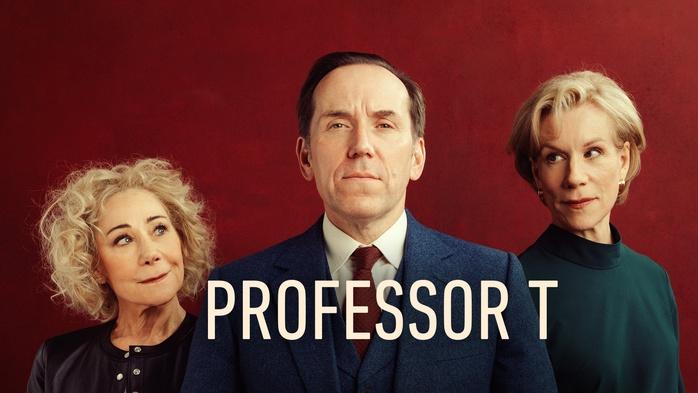


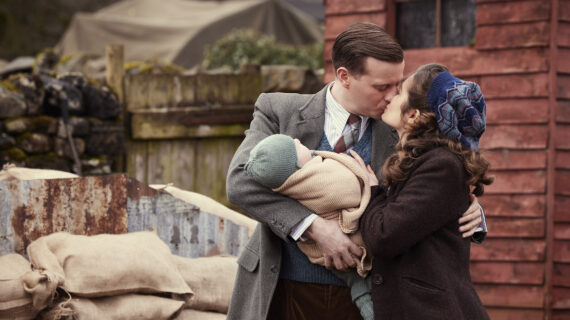

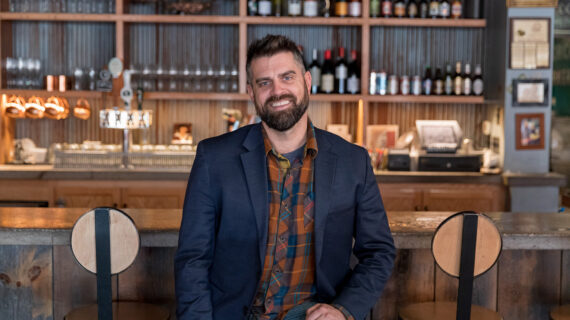
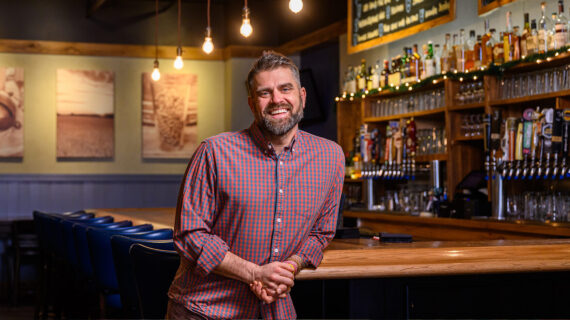
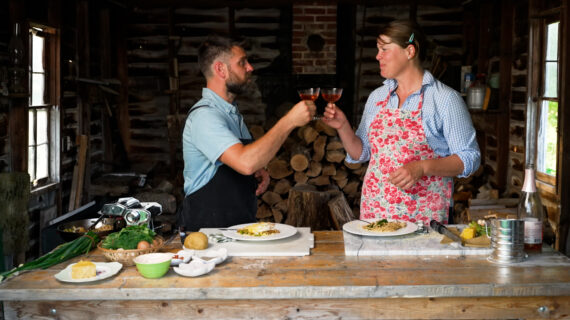
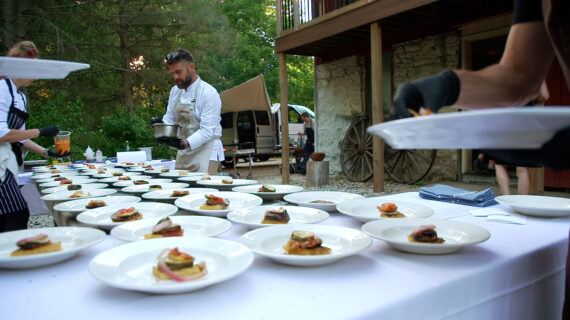
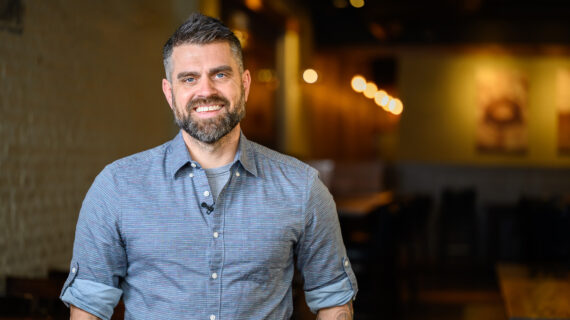
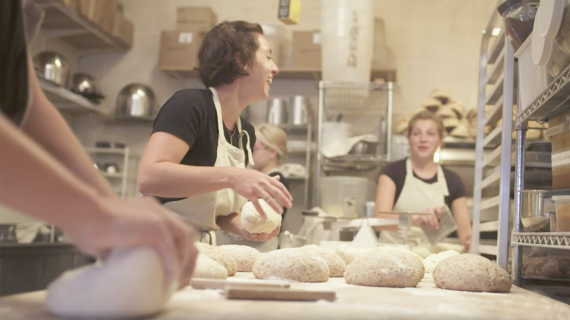
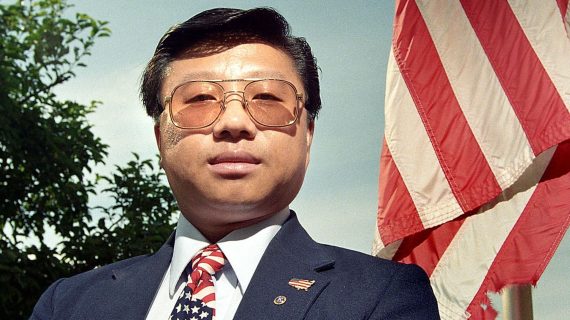

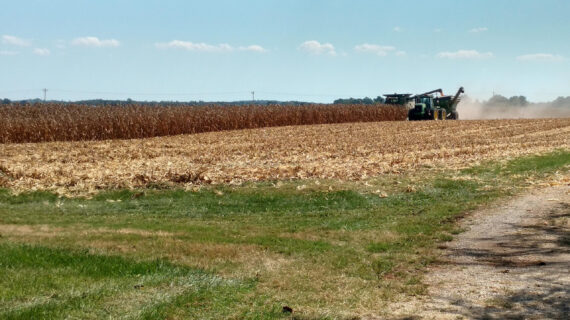

Follow Us